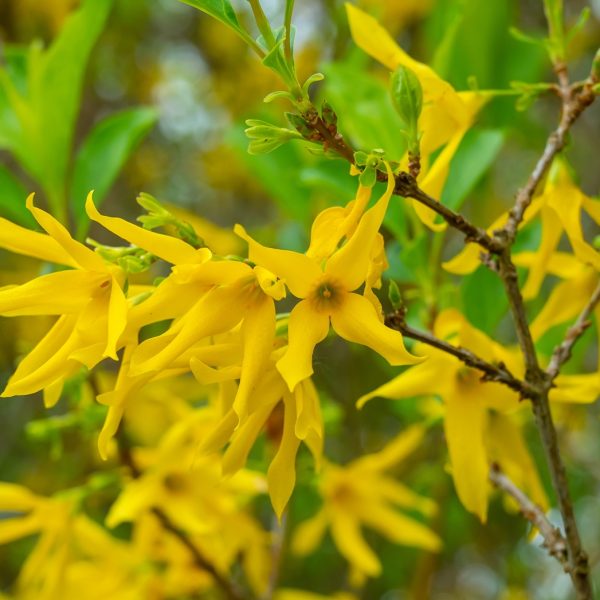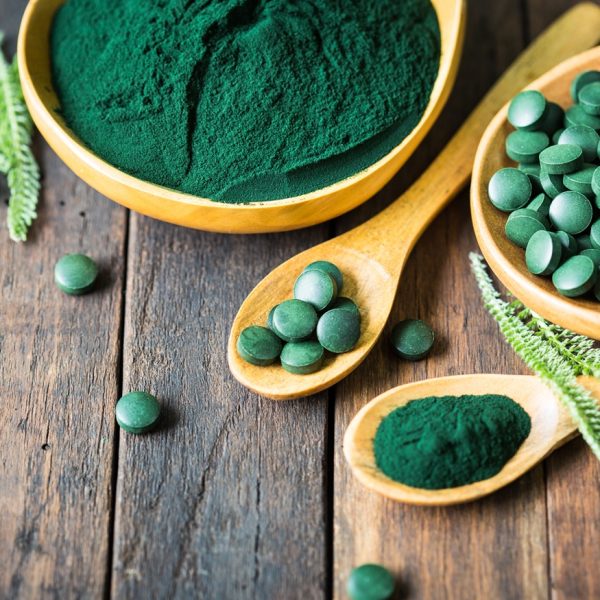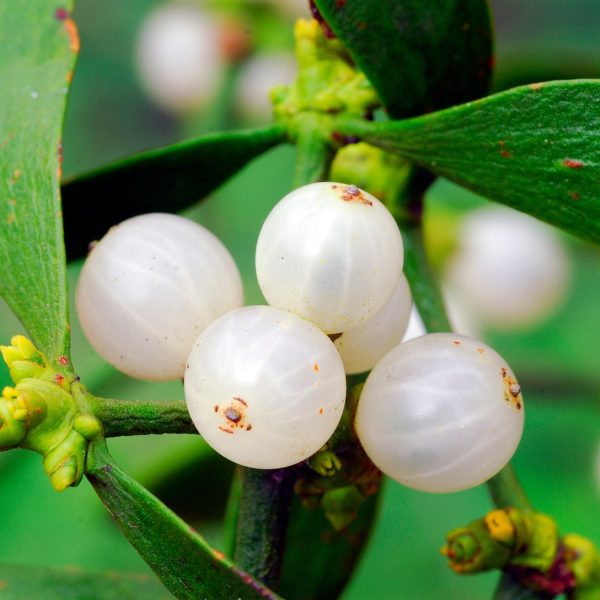Postpartum care is integral to the health of mother and baby, and herbal treatment can offer great support for both physical and emotional health.

The postpartum period, often known as the fourth trimester of pregnancy, is a critical phase for anyone and a time when herbal medicine can offer a wealth of support. After the birth of a baby, the main focus tends to be on the new arrival, and it is vital that the mother’s needs are not overlooked. Gentle and effective herbal treatment, properly prescribed, can safely support a mother on all levels of her wellbeing, and in some cases prevent years of ensuing health problems.
Most new mothers need both practical help and emotional support, as well as a nourishing diet, with plenty of time to rest, recover and be with their baby.
Postpartum herbal tonics provide invaluable medicine to accelerate healing, restore energy, nourish depletion, help rebalance hormones, support the nervous system, assist breastfeeding and generally help body, mind and spirit to adapt to this major transition. Taking a tonic at this time can make the difference between a postpartum experience of exhaustion and slow wound healing, or a joyful time of healing and connection with one’s baby. Typically, it is helpful to take a postpartum tonic for at least six weeks, often much longer.
A synergistic herbal mix could include the following:
- Agnus castus (Vitex agnus castus): A hormonal adaptogen and galactagogue (promotes milk flow) to balance hormones and support the production and flow of milk.
- Goat’s rue (Galega officinalis): Agalactagogue and blood sugar balancer, and combines well with agnus castus.
- Vervain (Verbena officinalis): A restorative nervine and galactagogue. It raises energy, combats fatigue, lifts mood and strengthens the nervous system.
- Dang gui (Angelica sinensis): A warming blood and energy tonic.
- Astragalus (Astragalus membranaceus): An immunostimulant tonic which also strengthens uterine energy.
A few drops of a flower essence such as rescue remedy can be added to a mix to help clear any residual shock and trauma.
Specific herbs can be included in a mix as appropriate for the individual, for example valerian (Valeriana officinalis) to relieve pain or calm anxiety.
In addition, raspberry leaf (Rubus idaeus) tea can be drunk daily, providing a nutrient-rich tonic as well as helping to tone the uterus and pelvic muscles.
Healing the perineum

Perineal trauma is estimated to affect 85% of women who have a vaginal delivery (1). The perineum may be bruised, sore and swollen, and may have torn or been cut and repaired. This can lead to a considerable amount of pain, as well as complaints such as urinary retention, incontinence, sexual dysfunction and constipation. Vulvar varicosities may also have become enlarged during labour.
Herbal sitz baths can significantly speed up perineal healing, relieve pain and soreness, release trauma and prevent infection. They are a simple way to restore damaged tissue in the entire pelvic area. Unless bleeding is excessive, sitz baths can be started the day after delivery, or as soon as blood loss is manageable.
A large plastic bowl or baby bath can be used as the bath, ideally with enough hot water to cover the hips. Herbal infusions or decoctions (around 500 ml) are added to the hot water and the mother stays in the bath until it cools (without getting cold). She must be well wrapped up in a warm room and given several towels to ensure she is comfortable, e.g. placing one under her knees. The mother should then dry and wrap up well afterwards. This is usually best done before bed.
Calendula (Calendula officinalis) and comfrey (Symphytum officinalis) make an ideal combination for a postpartum sitz bath. Calendula is used as a healing antiseptic, and comfrey for its ability to speed healing, calm inflammation, ease bruising and prevent scarring.
Safety note: Use comfrey infusion once daily for a maximum of five days.
Other suitable herbs for a sitz bath include:
- Lavender (Lavandula spp.): Relaxing sedative, analgesic, antiseptic, astringent.
- Chamomile (Matricaria recutita): Anti-inflammatory, analgesic, neuralgesic, vulnerary, mild antiseptic.
- Marshmallow root (Althaea officinalis): Soothing demulcent, emollient, vulnerary.
- Plantain (Plantago lanceolata/major): Astringent, anti-haemorrhagic, demulcent, antimicrobial, anti-inflammatory, vulnerary.
- Raspberry leaf: Soothing astringent, antihaemorrhagic, tonifying.
- Witch hazel (Hamamelis virginiana): Astringent, antihaemorrhagic, vasoconstrictor, anti-inflammatory, antiseptic.
- Yarrow (Achillea millefolium): Anti-inflammatory, antispasmodic, antihaemorrhagic, astringent.
Marigold or witch Hazel make an excellent local application for wounds, tears, swelling, soreness, vulval bruising or varicosities. Diluted tincture, tea or hydrosol can be applied as a frequent compress on a cotton pad or a lotion on cotton wool. If the area is initially too tender to touch, the same lotion can be put in a spray bottle and used frequently.
In addition, a healing ointment of marigold and/or comfrey can be applied liberally to the perineum. Effective alternatives include marshmallow or plantain.
Healing after caesarean section
A caesarean section (C-section) is a major abdominal surgery requiring plenty of rest and the avoidance of heavy lifting, overstretching or driving for at least six weeks.

The wound can be cleaned with marigold tincture or infusion, followed by the liberal application of comfrey ointment to speed healing, relieve pain and inflammation and reduce scar formation.
Itching can be relieved by the further application of a marshmallow root poultice.
Nerve damage from surgery may result in pain or numbness. This can be relieved by applying St John’s wort (Hypericum perforatum) ointment, either on its own or combined with comfrey.
St John’s wort can be taken internally for post-operative pain, and may often be combined with valerian or chamomile.
Following a C-section it is helpful to include herbs for tissue healing in a postpartum tonic, e.g. Marigold, St John’s wort, gotu kola (Centella asiatica).
Safety note: St John’s wort should be avoided in severe depression alongside psychosis. It should be discontinued three days prior to general anaesthetic. May cause photosensitisation in high doses. Contraindicated with immunosuppressants, digoxin, HIV medications, chemotherapeutic drugs and anticoagulants including warfarin.
Constipation
Constipation is particularly common after an episiotomy or stitches and it can be normal not to pass a bowel movement until at least day three after delivery. Linseeds or psyllium seeds/husks (Plantago ovata) can be recommended as gentle bulking agents, along with drinking plenty of water. A decoction of dandelion root (Taraxacum officinale) can be drunk as a gentle bowel regulator.
Breastfeeding
Herbs have long been used to support breastfeeding mothers and their babies. Galactagogue herbs help ensure a rich and plentiful milk supply and many herbs pass through breast milk also bringing benefit to a breastfed baby.
Helpful galactagogues include agnus castus, goats rue and vervain, as discussed above under postpartum tonics.
Fennel (Foeniculum vulgare), dill (Anethum graveolens) and caraway (Carum carvi) are all carminative galactagogues with the additional benefit of helping to prevent and treat infant colic.
Fenugreek (Trigonella foenum-graecum) is a tonic, demulcent and galactagogue, specific for debility of convalescence.
Afterpains
Afterpains are the uterine contractions that occur during involution, as the uterus shrinks back down to its pre-pregnancy size. These are usually mild after a first baby, becoming increasingly painful with each subsequent birth. They tend to be strongest when breastfeeding which triggers oxytocin release and uterine contraction.
Motherwort (Leonurus cardiaca) can be taken before breastfeeding to reduce pain.
Prolapse
Pelvic organ prolapse occurs when the muscles and tissues supporting the pelvic region weaken and stretch under the pressure of pregnancy and childbirth. This can cause one or more of the pelvic organs to slip down from their normal position and protrude into the vaginal canal. Prolapse may cause pain and feelings of dragging or heaviness in the pelvic area, and can be associated with a wide range of signs and symptoms including urinary incontinence, urinary frequency and urgency, bladder infection, dysuria, dyspareunia, constipation and lower back pain.
Childbirth represents a high risk factor for the development of prolapse, especially if there is a long second stage, assisted delivery or multiple deliveries (2). Returning to normal activity too soon, heavy lifting or the premature return to high-impact exercise are all exacerbating factors.
Effective treatment involves using herbs combined with daily pelvic floor exercises (Kegels) which can be of lifelong benefit. In advanced cases, physiotherapy may be necessary.
Useful herbs to take internally include: Raspberry leaf, astragalus, partridge berry (Mitchella repens) and black haw (Viburnum prunifolium), which all promote pelvic tone and encourage the organs to move back upwards.
Warm sitz baths, two or three times per week, can also help reduce prolapse and vaginal laxity. Suggested herbs include raspberry leaf, marigold, plantain, white deadnettle (Lamium album), rosemary (Rosmarinus officinalis), horsetail (Equisetum arvense) and rose (Rosa spp).
Emotional and stress-related conditions

Giving birth is a phenomenal experience and a massive initiation to a new phase of life, whether it is a parent’s first child or one of many. Their experience will be affected by a multitude of factors, and their feelings postpartum may range from terror and overwhelm, grief and despair to excitement, joy and ecstatic contentment. They may sail through the experience with ease or they may be exhausted, have panic attacks or trouble sleeping.
This is a vital time to offer support for emotional and stress-related conditions, which if left unattended can have a severe impact on their life and mental health, possibly leading to potential problems such as postpartum depression. Herbs can be invaluable to calm and strengthen the nervous system, relieve stress and tension, lift the spirits and increase feelings of well-being.
Unhappiness after childbirth is a complex area, frequently related to lack of social and psychological support. Herbs can offer significant support as part of a holistic approach.
Herbs for emotional and mental well-being
- Chamomile: Sedative, pain relieving and anti-inflammatory.
- Cramp bark (Viburnum opulus): Powerful antispasmodic, weak sedative. A key remedy to relieve muscular tension and spasm.
- Daisy (Bellis perennis): Tonic analgesic specific for emotional shock and to reduce compulsive behaviour.
- Gotu kola: Adaptogen specific for recovery from surgery and healing without scarification. Also indicated in tiredness, debility anddepression.
- Lavender: Sedative, analgesic. Combines well with rosemary for depression, especially with digestive disturbance.
- Lemon balm (Melissa officinalis): Sedative, nervine, lifts mood. Specific for depressive states with tearfulness.
- Limeflower (Tilia europaea): Sedative, nervine relaxant.
- Oatstraw (Avena sativa): Restorative nerve tonic, antidepressant, sedative for debility and exhaustion. Combines well with skullcap (Scutellaria lateriflora) and St John’s wort for nervous debility and depression.
- Passionflower (Passiflora incarnata): Relaxing nervine, sedative, hypnotic, analgesic, anxiolytic, adrenal relaxant. Relieves wakefulness, nervous excitability, restlessness, panic and agitation.
- Rose: Antidepressant, sedative. Lifts mood, calms and tones the nervous system, specific to soothing emotional pain in heart, helps overcome loss and feelings of low self worth.
- Skullcap: Sedative, nervine tonic and trophorestorative. Relaxes nervous tension and restores an exhausted nervous system. Combines well with vervain, valerian, passionflower and oats.
- St John’s wort: Nervine tonic and trophorestorative, sedative, antidepressant and eases anxiety.
- Valerian: Nervine, sedative, analgesic, hypnotic. A prime remedy for nervous system problems. Specific for nervous excitability and panic attacks. Works well as a simple, or combines well with passionflower for excitability or insomnia.
- Vervain: Nervine tonic trophorestorative, specific for over-striving, perfectionism and obsessive behaviour. Reduces paranoia.
All herbs listed are safe for breastfeeding mothers at standard dosage although idiosyncratic reactions are always possible, just as with foods.
For dosage and prescribing details see my book “The Herbalist’s Guide to Pregnancy, Childbirth and Beyond“ by Carole Guyett from Aeon Books.
References
- Webb S, Sherburn M, Ismail K M K. Managing perineal trauma after childbirth. BMJ. 2014; 349: g6829 doi:10.1136/bmj.g6829
- Bump RC, Norton PA. Epidemiology and natural history of pelvic floor dysfunction. Obstet Gynecol Clin North Am. 1998 Dec; 24(4):723-46. Doi: 10.1016/s0889-8545(05)70039-5. PMID: 9921553
































